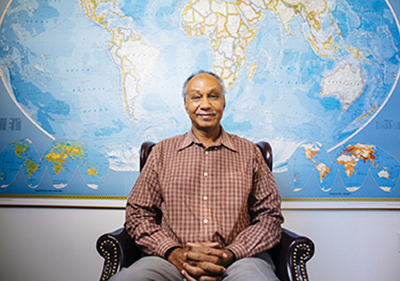Freedom and Race in the COVID-19 Era
Questions that Matter in the Time of Pandemic
Building on The Humanities Institute’s long-running Questions that Matter events and course programming, we invite you to consider Questions that Matter in the Time of Pandemic. Through this series of reflections we ask how the stories of this pandemic and Humanistic inquiry into questions of science, leadership, education, racial disparity, and global cultural understanding can shape solutions to the COVID-19 crisis.
This week, Humanities Dean Tyler Stovall reflects on freedom and race in the era of COVID-19 alongside the “long history” of scapegoating racial minorities during times of pandemic. Join Dean Stovall in conversation with associate professors Alice Yang, Christine Hong, and Noriko Aso for our Humanities Happy Hour virtual discussion on freedom and race on Thursday, May 14th, at 5:30pm.
You can also watch the full video of our Questions that Matter: Freedom and Race event in which Jennifer Gonzalez and Tyler Stovall discuss the idea that racism—and the exclusion of racial groups from society—is essential to understanding freedom in America.
Freedom and Race in the COVID-19 Era
Dean Tyler Stovall
What does it mean to be free in a nation on house arrest? How can we talk about freedom when millions of Americans have been forced to leave their jobs and can barely walk out their front doors? In recent weeks a powerful nationwide movement has developed demanding that public authorities end shelter-in-place orders, that in effect individuals should have the right to decide for themselves whether or not to risk coming down with coronavirus. In Michigan, for example, demonstrators massed in front of the state capital bearing “Free Michigan” signs and calling shelter-in-place orders “tyranny.”
The recent impact of the COVID-19 pandemic on America has illustrated how freedom and race often go together. Participants in these recent demonstrations against shelter- in- place orders were overwhelmingly white and frequently carried Confederate flags as a sign of their commitment to freedom. Moreover, some have reacted to the current pandemic by blaming and scapegoating those different from them. This is nothing new: the Black Death gave rise to pogroms against Jews in medieval Europe, and anti-Chinese activists in 19th century San Francisco frequently blamed Asians for outbreaks of disease there. Current tendencies to blame the pandemic on Orthodox Jews in New York or to label it the “Wuhan virus” thus have a long history.
At the same time, the differential impact of the pandemic dramatically mirrors racial inequalities in contemporary American society. The disease has had a disproportionate effect on Black and Latino communities, who have often suffered mortality rates two and three times the national average. Far from bringing us together, therefore, in many ways the COVID-19 pandemic has highlighted those differences that drive us apart.
The Covid-19 pandemic is illustrating critical issues surrounding freedom and race in the United States. Next week The Humanities Institute will extend our public series “Questions That Matter” with a discussion of freedom and race in the era of coronavirus. Join us for the Humanities Happy Hour, Thursday, May 14th, at 5:30pm, on Zoom.

Tyler Stovall is a Distinguished Professor of History and the Dean of the Humanities Division at UC Santa Cruz. An expert in French history, Stovall is the immediate past president-elect of the American Historical Association, the largest professional organization in the country devoted to the study of history. In 2016 he was featured in a Time magazine story titled “25 Moments That Changed America.”
